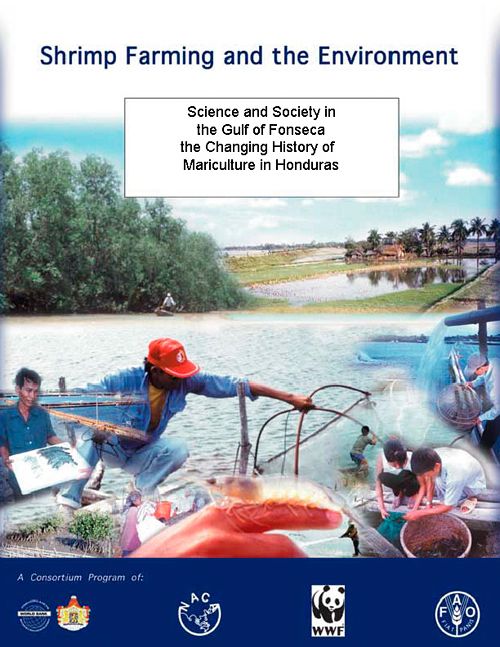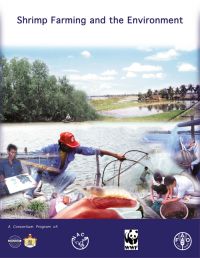Science and society in the Gulf of Fonseca: The changing history of mariculture in Honduras
15 August 2005 | Denise Stanley and Carolina Alduvin | 2114 Downloads | .pdf | 427.49 KB | Better management practices, Governance and Policy, Livelihoods, gender and social issues, Shrimp, Environment and Sustainability
Shrimp farming in southern Honduras has generated considerable controversy around the issues of natural resource access and management. This case study reviews the reasons for and history of that controversy. The early disorderly growth of the industry is seen as having created both public and private costs and benefits in these early years. But the shrimp industry’s proactive stance and sustainability ethic after 1994 are factors that led to more cooperation among stakeholders in the zone. Additionally, international research efforts, vertical integration, and the pressure of environmentalists have considerably changed industry dynamics in the Gulf of Fonseca. The new protected areas legislation offers lessons of sustainable coastal management strategies available to other countries with mariculture programs. However, the case study concludes that additional data is needed to assess the actual social and environmental effects of mariculture on local communities.
The study relies on an extensive literature review and insights from the author’s previous research trips to southern Honduras between 1991 and 2000. In addition, representatives from several government offices, the shrimp industry, and the primary nongovernmental organisations were interviewed in May 2000. These offices supplied written contributions integrated into this document and have reviewed its contents. Some provided written commentary.
Copyright, all rights reserved.

